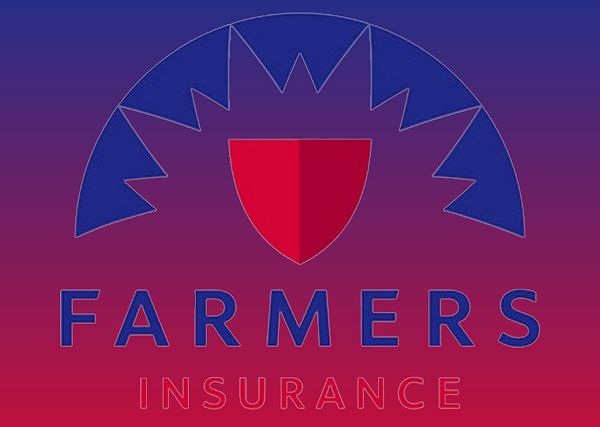Securing Texas small business insurance is not merely a formal step; it is a critical necessity for the survival of your business. The absence of appropriate coverage can lead to financial ruin, especially for contractors facing workplace injuries or property damage claims. This guide offers a comprehensive overview of essential policies, costs, and the serious financial implications of neglecting insurance coverage.
Understanding Texas Business Insurance Requirements
Navigating the landscape of Texas business insurance requirements is vital for contractors and small business owners. Knowing the necessary types of coverage can protect your business against unforeseen risks.
General Liability Insurance

General liability insurance serves as a cornerstone of Texas small business insurance. This coverage protects against property damage and bodily injury resulting from business operations. For instance, if a contractor inadvertently damages a client’s property during a renovation, general liability insurance will cover the costs, including legal fees. This type of insurance is essential for safeguarding your financial interests and maintaining client trust.
Commercial Auto Insurance

For businesses that involve vehicle use, commercial auto insurance is legally mandated in Texas. This insurance covers damages and liabilities arising from accidents involving company vehicles. Texas sets a minimum coverage level, and non-compliance can lead to penalties. Contractors should consider comprehensive coverage options that include liability, collision, and comprehensive coverage to protect against a wide range of risks associated with business-related driving.
Workers’ Compensation Insurance

While not obligatory for all businesses in Texas, workers’ compensation insurance is strongly recommended for contractors. This insurance covers medical expenses and lost wages for employees injured on the job. Without this coverage, businesses may face significant liabilities, including out-of-pocket expenses for medical bills and potential lawsuits. Moreover, having workers’ compensation insurance can enhance employee morale and demonstrate a commitment to workplace safety.
Different types of workers’ compensation insurance are available in Texas, including competitive state fund options. Though Texas does not have a monopolistic state fund, contractors can choose from private insurers that provide coverage. The Texas Department of Insurance (TDI) offers resources and guidance on how to obtain the appropriate coverage for your business needs.
Professional Liability Insurance

For professionals such as consultants, architects, and engineers, professional liability insurance is critical. This coverage protects against claims of negligence, errors, or omissions in the services provided. For example, if a client alleges that a contractor’s oversight caused financial losses, this insurance can cover legal fees and settlements.
Texas Small Business Insurance Costs and Budgeting
Understanding Texas small business insurance costs is essential for effective budgeting. Several factors influence the cost of insurance, and being aware of these can help you plan accordingly.
Factors Affecting Texas Small Business Insurance Cost

Several elements can impact the cost of business insurance in Texas:
- Business Size: Larger businesses typically incur higher costs due to increased risk exposure.
- Type of Work: High-risk industries often face elevated premiums.
- Number of Employees: More employees can lead to higher workers’ compensation premiums.
- Claims History: A history of claims can increase future costs.
- Location: Areas with higher crime rates or natural disaster risks may result in elevated premiums.
Additionally, the impact of inflation and supply chain issues has recently become a significant factor affecting insurance costs. Economic trends have increased the price of materials and labor, which in turn has led to higher insurance premiums for contractors due to increased claim payouts. For example, the rising cost of lumber from 2021-2022 impacted construction insurance, causing premiums to spike as insurers anticipated greater claim amounts.
For example, a contractor working in residential renovations may have different insurance costs compared to one specializing in commercial construction due to varying risk levels.
Obtaining Accurate Quotes
To secure the best rates, contractors must provide accurate information when requesting quotes from insurance providers. Inaccurate or incomplete details can lead to inflated costs or gaps in coverage, which can be detrimental in the event of a claim. Therefore, gathering necessary documentation and details about your operations before reaching out for quotes is essential.
Budgeting for Insurance Expenses
Incorporating insurance costs into your financial planning is crucial. Setting aside a specific amount for insurance expenses ensures preparedness for both expected and unexpected costs. Additionally, anticipate potential increases in premiums over time and factor these into your budgets to maintain adequate coverage.
Finding the Right Texas Small Business Insurance Provider
Choosing the right insurance provider is a pivotal step in securing the best small business insurance in Texas.
Researching Insurance Providers

Start by researching reputable Texas small business insurance providers that cater to your specific needs. Consider companies known for their strong financial ratings, such as Nationwide, State Farm, The Hartford, Farmers, and Travelers. These providers have a solid reputation for customer service and claims processing.
Key Factors When Choosing a Provider
When selecting an insurance provider, keep the following factors in mind:
- Financial Stability: Look for insurers with high AM Best ratings to ensure they can honor claims.
- Customer Service: Check reviews from organizations like J.D. Power to gauge the insurer’s reputation for service.
- Specialized Packages: Some providers offer tailored insurance packages that can meet the unique needs of contractors and small businesses.
- Texas Small Business Insurance Reviews: Read online reviews and testimonials to understand other business owners’ experiences with different insurers.
Working with an Insurance Broker
Engaging an independent insurance broker can simplify the process of finding the right coverage. Brokers have access to multiple insurers and can help contractors compare options, ensuring they secure the best coverage at competitive rates. Additionally, brokers can provide valuable guidance tailored to the specific needs of your business.
It is important to note that while some small businesses might consider self-insuring, particularly those with low-risk profiles, this approach carries significant financial risks. Major incidents can lead to devastating losses that may far exceed the cost of traditional insurance coverage.
Essential Texas Small Business Insurance Products
To ensure comprehensive coverage, Texas small businesses should consider several key insurance products.
Business Owner’s Policy (BOP)

A Business Owner’s Policy (BOP) is an excellent option for many contractors. It combines various coverages, typically including general liability insurance, property insurance, and business interruption coverage. The primary advantages of a BOP are its cost-effectiveness and convenience. However, contractors should be aware that BOPs may not cover all specialized needs, and customization options could be limited.
Commercial Auto Insurance
As mentioned earlier, commercial auto insurance is crucial for contractors who operate vehicles for their business. It covers damages and liabilities arising from accidents involving company vehicles, with options that may include liability for bodily injury and property damage, as well as collision and comprehensive coverage.
Workers’ Compensation Insurance
Once again, workers’ compensation insurance is vital for contractors with employees. It protects against medical expenses and legal liabilities stemming from workplace injuries. This coverage can enhance employee morale and safeguard against costly lawsuits.
Tools and Equipment Coverage

Contractors rely heavily on their tools and equipment, making it crucial to insure these assets against loss or damage. Tools and equipment coverage can be included in a BOP or purchased as a separate policy, such as Inland Marine Insurance. This coverage helps contractors recover the costs of replacing or repairing essential equipment but often requires maintaining a detailed inventory and valuation.
Cyber Insurance
For businesses that operate online or store sensitive customer information, cyber insurance is becoming increasingly important. This coverage protects against data breaches, hacking incidents, and associated recovery costs. As digital threats continue to rise, having cyber insurance can be a valuable asset. According to IBM’s Cost of a Data Breach Report, the average cost of a data breach for small businesses can exceed $200,000, highlighting the need for effective cyber coverage.
Texas Small Business Insurance Reviews and Resources
Accessing reviews and resources can provide valuable insights into the insurance landscape.
Importance of Texas Small Business Insurance Reviews
Checking online reviews and testimonials from fellow Texas business owners can offer valuable insights into their experiences with different insurers. These reviews can help you gauge the reliability and service quality of various providers.
Utilizing Resources like the NAIC
The National Association of Insurance Commissioners (NAIC) is a valuable resource for assessing insurer reliability and service quality. Their complaint data can help you make informed decisions when selecting an insurance provider.
Navigating the TDI Website
The Texas Department of Insurance (TDI) website is an excellent resource for comprehensive information on regulations, resources, and consumer protection related to insurance in Texas. Familiarizing yourself with the TDI website can help you stay informed about your rights and obligations as a business owner, as well as the various options available for obtaining insurance coverage.
Best Practices for Texas Small Business Insurance
Implementing best practices can help contractors effectively manage their insurance needs and minimize risks.
- Maintain Accurate Records: Keeping detailed records of all business activities, including contracts, invoices, and project details, is essential for documenting claims.
- Implement Safety Protocols: Establishing safety measures on job sites can significantly reduce the risk of accidents and injuries, lowering the likelihood of claims.
- Regularly Review Insurance Policies: Periodically reviewing and updating your insurance policies ensures that coverage remains adequate as your business evolves.
- Communicate with Insurance Providers: Maintain open communication with insurers about changes in business operations to ensure that coverage is aligned with current needs.
- Seek Professional Advice: Consulting with an insurance broker or agent can provide valuable insights and ensure that you have the appropriate coverage for your specific circumstances.
Conclusion
This guide has provided a comprehensive overview of Texas small business insurance, covering requirements, costs, provider selection, essential products, and best practices. By understanding these key aspects, Texas small business owners can effectively protect their businesses from various risks and ensure long-term financial stability. Take the next step today and contact a reputable insurance provider or broker to get a personalized quote tailored to your specific business needs. Don’t leave your business vulnerable—secure the right coverage now.
